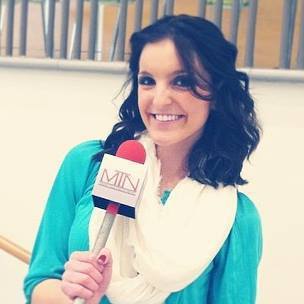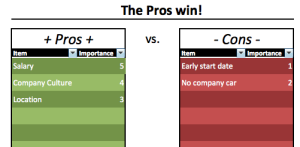 On Take Your Success, I regularly interview top-performing college students to understand how they’re successful, so you can recreate the success in your life. Take what’s helpful, dismiss what’s not!
On Take Your Success, I regularly interview top-performing college students to understand how they’re successful, so you can recreate the success in your life. Take what’s helpful, dismiss what’s not!
Before I interviewed Rachel Tracy, I saw excellence in my organization and scheduling habits. Now, I think Rachel’s organization might beat everyone.
Beyond her impressive planning, I wanted to interview Rachel because of her experience making connections and finding internships.
This summer, between her junior and senior year of college, Rachel has three jobs: an internship with FOX19, an internship with a Congressman, and a waitress position at a local restaurant. Talk about grinding for what you want!
I’m confident you will discover some relatable nugget of information from this interview. And after, keep reading to see the main takeaway for you.
——
Brian: How have you grown as a journalist during your time in college?
Rachel: Surprisingly, I have done most of my growing just this summer. I began my first reporting internship and since then I have learned more than I have in my two years studying journalism.
I have learned how to time manage my video production, how to write for broadcast versus write for print, how to edit using a different editing system I am supplied at school. I have learned what questions to ask, when to ask them. I’ve learned how to speak with the public, how to knock on doors for interviews and how to approach a sensitive setting to get the information I need. I’ve also learned how a news room runs, which may be helpful in the future since every news room is different.
Brian: What’s your favorite part about journalism (interviewing, preparing, video production, being on camera, etc.)?
Rachel: My favorite part is interviewing and editing. I truly enjoy talking to people, on and off the camera, so going into an interview is easy for me. Some people really struggle with this, which makes sense. Sometimes the situations are dangerous/sensitive and you have to know how to talk to people at the level of the situation to get any good information out of an interview.
Editing is also really fun. You get to take the shots and sound you’ve recorded out in the field and take them back into the studio to truly make the package yours. It’s fun to decide what sound bites to use, where to put them, what your cold open is going to say, how you’re going to add effect or emotion. Being on camera is definitely fun, but that’s the easy part. That takes place after you’ve done the hard work, which is the most rewarding.
Brian: How were you able to get multiple internships in the journalism field?
Rachel: Honestly, most of these have fallen into my lap after making one or two connections. One or two connections can get you anywhere. One person likes you/your work and they recommend you to someone else or recommend you apply for a position you weren’t aware was available. That is how it happened for me.
I had a professor that worked in the journalism industry, and I made sure to stand out in the class. I made sure to go to office hours and email her to make sure my work was improving. She later asked me to do some small side work for the journalism company she worked for.
And this is where talking with people and making connections becomes easier because you gain self-confidence in your work when one person believes you have it in you to make it big in said industry. Once I had someone notice me and my work, I was less afraid to approach other companies with my interest.
Brian: If you were to talk to underclassmen, what would you say is your most important time-management tip?
Rachel: I own three different calendars. I’ve always been a busy person, but everyone is busy in college so it’s important to (a) have a calendar and (b) organize it in a way that best helps you plan and execute your day.
When you receive your syllabus, put ALL assignment/exam dates in your calendar. Write down the professor’s office hours and the best way to reach him or her. Always take notes and plan out your days hour-by-hour if that truly helps you. In my calendar, I would write down my assignments each day by the order of priority. I always liked to meet my due dates early, but I liked to have a list of priority so I made sure, at the very least, I got done what I needed to for the next morning.
Another great tip, do not make the decision in your head to go to bed now and do the assignment/study for the test in the morning. It doesn’t matter if you’re a morning person or not, you will not want to get up a few hours earlier than normal to do what you need to. Unless you absolutely have to, do it the night before and get the most rest possible.
Brian: Tell me what motivates you.
Rachel: God and my siblings. Point blank. I am the oldest of six, and they are all under the age of nine. Knowing that I am a big sister to five people is a huge responsibility. I want to set a good example and be the best role model possible for them.
God also blesses me with a new day and He has given me the circumstances I have right now, and I cannot thank Him enough. He has given me the tools, now I feel the need to use those to serve Him well.
Brian: What would those who know you well say you’re elite at?
Rachel: Keeping myself busy. Whether this is a good thing or a bad thing, that is what my personality calls for. This is also how I deal with stress. When I am stressed about something, I keep myself busy with school, work, growing spiritually, etc.
Brian: What kind of beat do you want to cover when you become a reporter?
Rachel: I have two main interests: extraordinary stories from ordinary people…and politics. Very different ends of the journalistic spectrum. I’ve grown up in a politically active household, so politics is one of my main interests. I am a journalism and political science major if that says anything.
Now, with my other interest, it comes from enjoying talking with others. I like to ask people questions and learn about their lives. Everyone has a story. Is it worthy enough to tell? Well, that’s up to me.
Brian: Where do you see yourself as a journalist in 5 to 10 years?
Rachel: I hope to be a reporter/anchor in D.C. at that time. However, I would enjoy writing, reporting, producing, editing anywhere as long as I am busy (not sitting at a desk all day), speaking with others, always growing, always challenging myself, and serving God in the best way I know how.
——
Immediately we learn how much Rachel Tracy has grown as a journalist and enjoyed her FOX19 internship. This is a testimony to the importance of finding a quality internship in your future field of work.
However, I want to highlight what Rachel said about making connections, which she did by first finding one person. She worked hard to make a positive impression on a professor, and then the professor helped her get more work. So one connection significantly escalated her confidence and professional network.
Knowing that one connection can lead to other opportunities is meaningful. I think many college students hear the phrases “It’s all about your connections” and “You need a strong network,” but they don’t know where to start. It’s confusing and overwhelming on the surface because you may think you need 20-plus connections.
Rachel’s example shows us how identifying one possible connection can lead to other opportunities. Simply focus on continually growing your network by one person, and over time, you’ll have many different options for career help.
In application to you, think about or (even better) write a list of potential connections. Brainstorm professors you’re going to have next semester, managers at your summer job, or advisors of your student organization.
Then get creative with how you can impress them. Good examples include going above and beyond a project, going to office hours with the purpose of establish a friendly relationship, and innovating a major improvement in your student organization. There are plenty of other opportunities.
Connections don’t always come to you. The people I know with the biggest network, made the effort to create their own network.
Readers, how can you relate to Rachel? What has helped you gain internships in the past? Does reading about Rachel’s three jobs this summer push you to work harder? Anything else you want to comment on?


